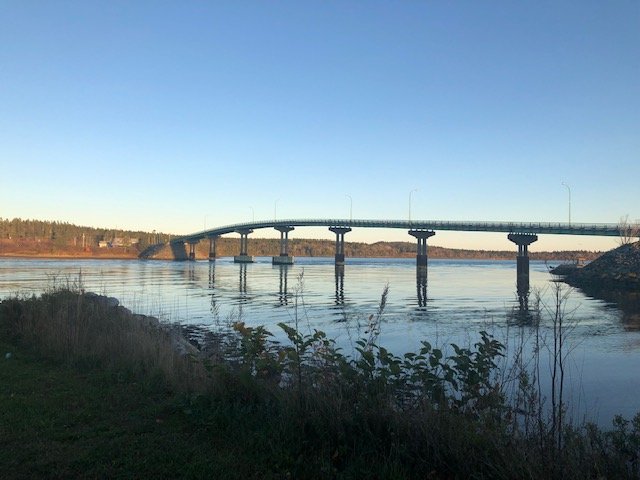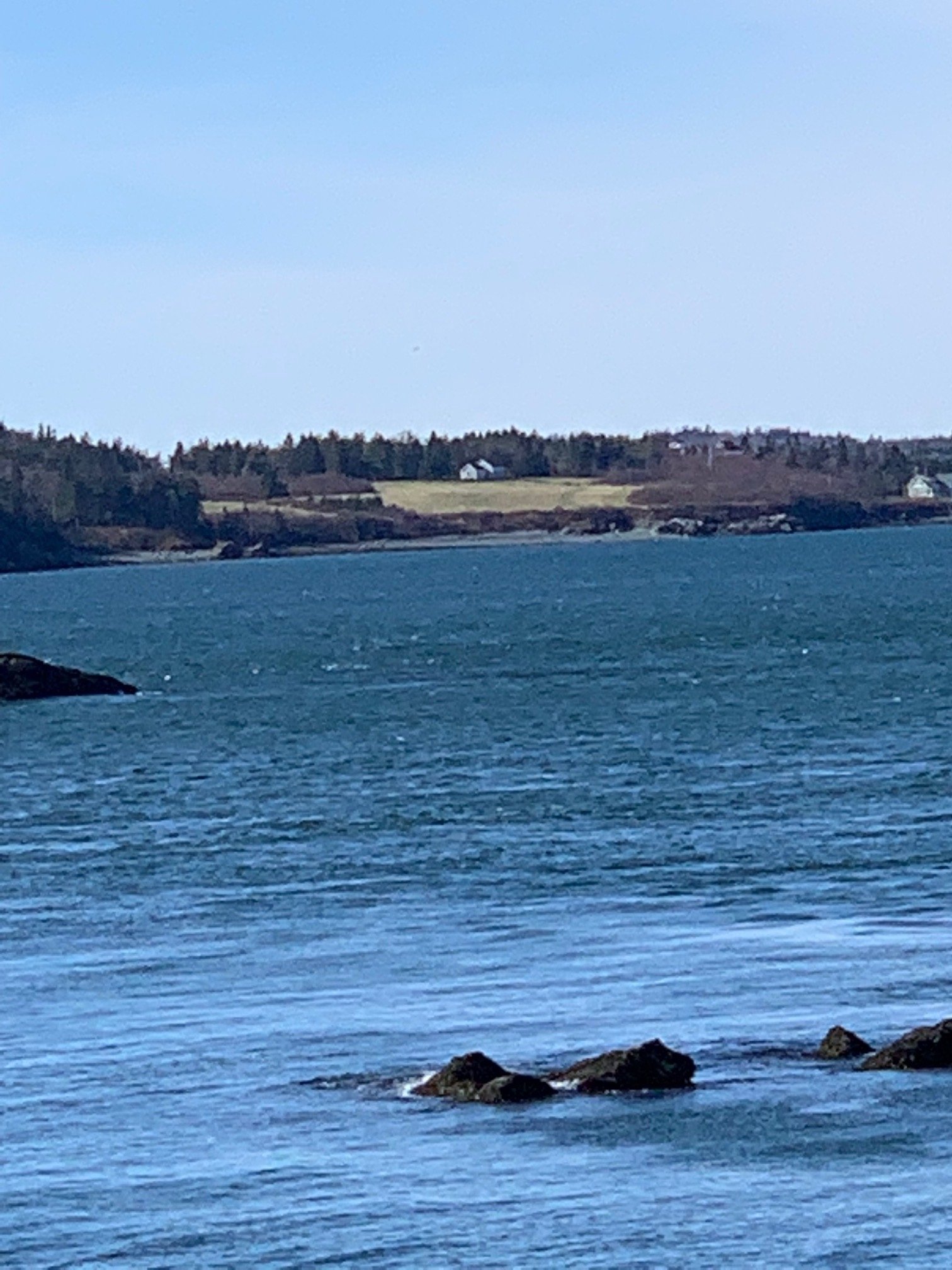Campobello Island, Looked at from Two Countries
/Campobello Island is in Canada, but its only land access is a two-lane bridge from Lubec, Maine. Even though I knew I was going to an island only 15 square miles in size with a population of about 950 people, the sign “To Canada” off of Maine Rte. 189 seemed exciting. My first post (if we are “post”)-COVID use of my passport.
Each country has its crossing office that looks like a toll booth at its end of the bridge. In an unscientific sample of one crossing in late October 2022, the Canadian encounter is more pleasant (big surprise). To re-enter the U.S., after a stay on the island that maybe lasted 3 hours, we had to open the back of our van and “pleasantly” respond when the border officer remarked on its cleanliness.
Flipping through our passports, he said, “You folks have done a lot of international travel.”
“Well, we did pre-COVID.”
“Why?”
Was he accusing us of something beyond curiosity? I felt like saying it was none of his business, but I didn’t. I got the smallest reminder of officially sanctioned intrusion, knowing how it can spin out of control.
The Roosevelts on Campobello
When Franklin Delano Roosevelt’s family came to Campobello for the summer, they certainly didn’t need passports, nor did they cross over what is now called the FDR Bridge. They and their many pieces of luggage crossed over the Passamaquoddy Bay by boat from Eastport. As shown on this map, Lubec and Eastport are almost within eyesight of each other by water, but about an hour’s drive from one point around to the other.
FDR’s father James and other investors bought land on Campobello and built hotels for wealthy tourists from U.S. and Canadian cities. He also built a house for his family. Young Franklin, born in 1882, spent summers there. Franklin’s only sibling was a half-brother almost 30 years older than he. Thus, he essentially grew up as an only child. I am imagining him on Campobello sailing, hiking, and making mischief, but often alone.
In 1905, he married Eleanor. His mother Sara, known to intrude into the young couple’s lives, gave them a wedding present of their own home where they could spend their summer holidays—the large red cottage next door to hers. (According to the National Park Service website, the owner offered it to her at a great price.) The house is now the heart of Roosevelt International Park. Open during the summer, the “cottage” has 34 comfortable but not luxurious rooms, porches, and a large lawn that slopes down to the bay. Guides, many descended from Campobello families who interacted with the Roosevelts, give an array of tours and talks.
The “cottage” where the Roosevelts spent summers from 1908 to 1921, then intermittently afterwards.
FDR became ill with polio in 1921 when he was 39 and the father of five children. They were at Campobello when the symptoms presented, a frightening time for all. He spent the 1920s trying to recover as much strength and mobility as possible, little knowing that his future held four elections as President and more than a dozen years in office to encompass the Depression and World War II.
The glorious days of restful summers on Campobello were behind them, but Campobello was very much part of their family DNA. After Eleanor sold it in the 1950s, she convinced purchaser Armand Hammer to donate the buildings and property for a park. It’s considered the only “internationally managed park” in the world, now jointly managed by the U.S. and Canadian park services.
Franklin and Eleanor, courting in Campobello, 1905.
Beyond the Cottage
The Roosevelts also owned thousands of acres of woods, bogs, and shoreline. We took some of the same hikes and rides they once enjoyed. From Liberty Point, we could see across to Maine to the place where we are staying! (at the top of the large pasture on the right).
On the left, check out the West Quoddy Lighthouse, the first place where the sun rises in the continental U.S. In Canada, that distinction goes to Cape Spear in Newfoundland.
Google promised a few restaurants and the Roosevelt Visitors’ Center would be open, but they had all closed for the season. We came upon a small grocery store for a snack, bathroom break, and birdseed shaped like a bell to bring back for the birds back home. Fortunately, it was not confiscated at the border.







